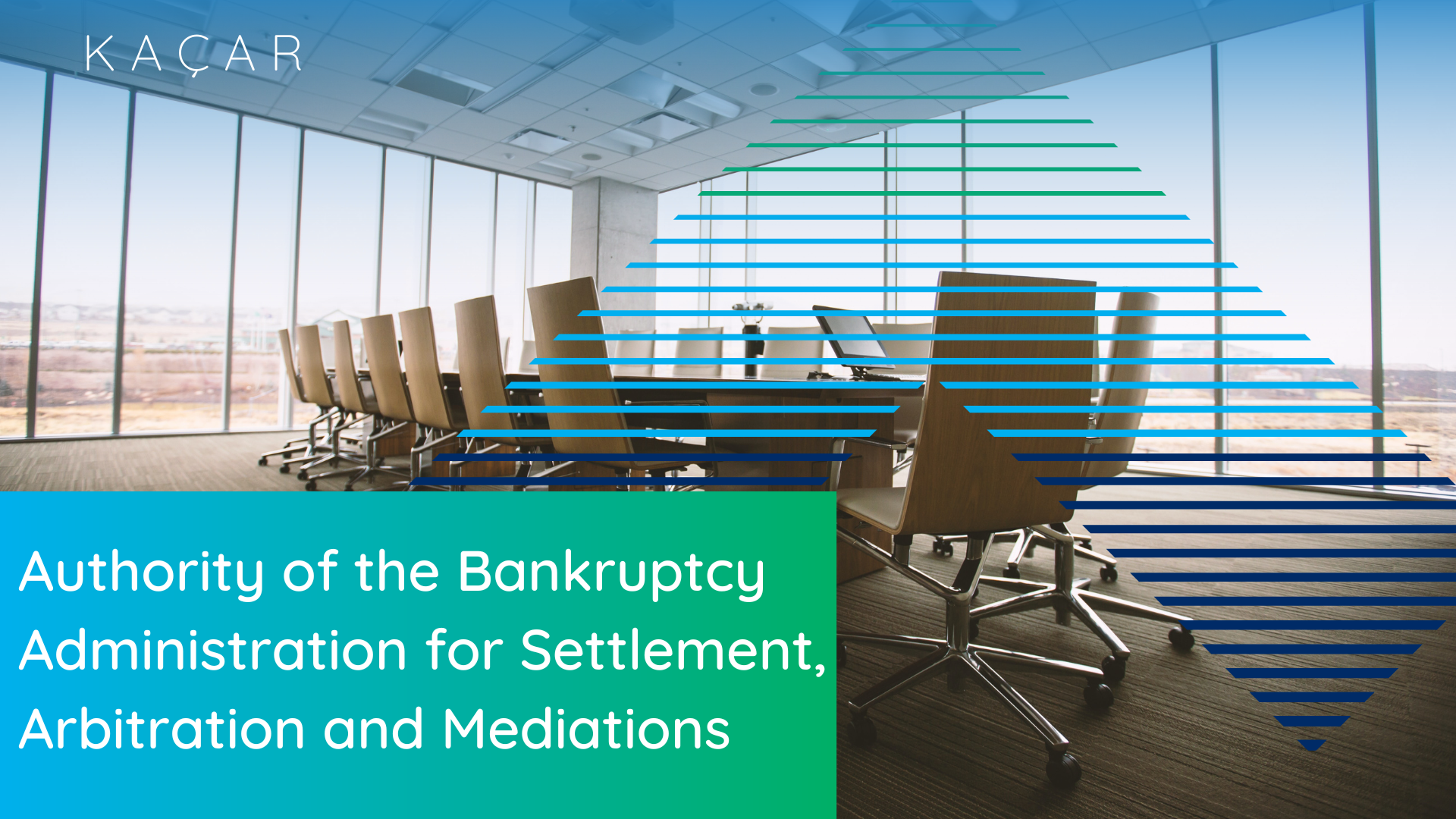INFORMATION HUB | Insolvency & Restructuring
26th October 2023
Preparing for the Worst: Dealing with Insolvency of Clients and Suppliers in Türkiye and Mitigating Potential Risks
Introduction
In the ever-changing landscape of business, it is not uncommon for companies to face financial challenges, potentially leading to insolvency, restructuring, or liquidation. As a prudent business owner, it is a common essential to be prepared for such situations, especially when dealing with clients and suppliers in Türkiye who may encounter liquidity problems. This article outlines critical actions to take in response to a debtor’s insolvency in Türkiye, discussing potential risks and strategies to safeguard one’s interests.
Review Contracts and Understand Legal Implications
The first step in preparing for a debtor’s insolvency is to review the existing contracts with them. It is vital to understand the legal implications and limitations in case of formal restructuring proceedings in Türkiye. The concept of “ipso facto” clauses, which allow a contract to be terminated due to a party’s insolvency, may be rendered unenforceable during the composition proceeding which is the most applied formal restructuring proceeding in Türkiye. This means that existing contracts may remain binding despite the debtor’s financial distress, obligating both parties to fulfill their contractual obligations. Additionally, debtors possess a statutory right to terminate executory agreements that could impede their restructuring goals of the composition procedure. By understanding the legal implications, businesses can better navigate through the complexities of insolvency and devise appropriate responses.
Prepare for Voluntarily Negotiations and Standstill Periods
In the current or future inability to pay due debts, debtors may seek a standstill period, wherein the enforcement of existing contracts or debt payments is temporarily and for a specific period halted in scope of a binding debt restructuring agreement. Such a period allows the debtor to negotiate with the creditor or restructure their financial affairs. As a creditor, being aware of this possibility is crucial to develop a standstill agreement or be prepared for negotiations regarding rescheduling and potential haircuts on debt payments.
Understand Risks Against Automatic-Stay Decisions
When a debtor files for composition proceeding, they may enjoy the protection of an automatic stay, which prohibits and/or restrict both secured and unsecured creditors from pursuing legal actions or realizing a collateral. This automatic stay in Türkiye can last for an extended period, potentially up to 29 months or more. As a creditor, it is essential to review your risks during this moratorium period, as it may significantly impact your cash flow and ability to recover outstanding debts.
Ranking as a Creditor and Potential Recovery
Understanding your position and ranking as a creditor is vital when a debtor faces bankruptcy liquidation. Different types of debts may be prioritized, and secured creditors may have a higher chance of recovering their debts compared to unsecured creditors. It is essential to assess your position in the creditor hierarchy and determine the potential recovery you might receive from the liquidation proceeds.
Ensure Adequate Credit Insurance Coverage
Having credit insurance in place can be a valuable asset when dealing with an insolvent debtor. Credit insurance can provide coverage in the event of a debtor’s restructuring or insolvency proceedings, mitigating potential financial losses for the creditor. However, it is crucial to review the insurance policy carefully to understand its terms, conditions, and coverage limits.
Consider Financing and Investment Options
While facing a debtor’s insolvency, businesses may face the decision of providing further financial support through new financing or investments. Such actions should be taken with caution, and a thorough risk assessment must be conducted before committing additional resources to an insolvent entity. Note that new financings and doing business with the debtor under the permission of the insolvency practitioner appointed during the composition proceeding are protected and excluded from the effects of automatic stay and also given priority over all other unsecured creditors in the event of the possible bankruptcy of the debtor.
Review Debt Sale Options
As a creditor, you may explore the option of selling your debt to a third party. Debt sales and assignments can offer an opportunity to recover some value from an insolvent debtor, even if the recovery is not in full. However, it is essential to consider the potential discount on the debt’s face value when engaging in such transactions.
Conclusion
In conclusion, facing the insolvency of a client or supplier requires careful planning and understanding of the legal and financial implications. Proactively reviewing contracts, assessing risks, and exploring potential actions can help businesses protect their interests during such challenging times. By taking the necessary precautions and being prepared for the worst-case scenario, companies can navigate through these uncertain waters with greater resilience and minimized financial losses.





